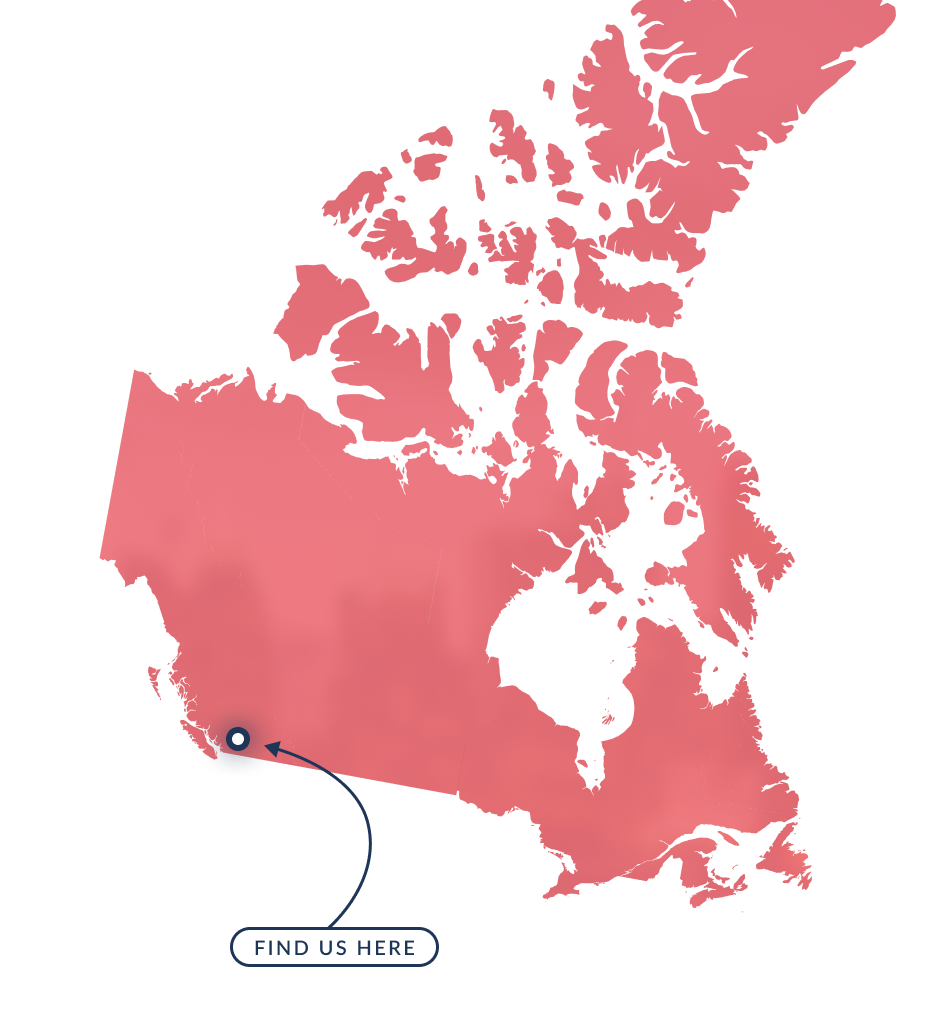Criminality / Inadmissibility
Our law firm will help you overcome any criminal or medical issues that might cause a hindrance in your immigration .
Refusals And Appeals
In order to study in Canada, the majority of foreign nationals require a study permit. The issuance of study permits is approved at the discretion of Canadian immigration officers. Unfortunately, it is common for a study permit to be refused to a foreign national for a variety of reasons. In the event that a study permit is refused, a visa officer will issue the refusal in a letter outlining the grounds for refusal.
If a foreign national is refused a study permit by Immigration, Refugees and Citizenship Canada (IRCC), there are two courses of action for addressing the refusal:
- Appeal the decision:If the applicant believes that their application met all requirements as mandated by IRCC, but the study permit was refused unfairly or incorrectly, the foreign national can appeal the decision and request a reconsideration.
- Submit a new application:If the applicant believes that the grounds for refusal are valid, then their only course of action is to submit a new application. In the new application they should pay careful attention to address the previous grounds for refusal. As well, if any documents need to be updated (start date on acceptance letter, updated bank statements, etc.) the applicant should be sure to obtain these updates.
Table of Contents
What to do if Your Application is RefusedReasons for Refusal
What to do if Your Application is Refused
When a study permit application is refused, this refusal will be noted in a letter issued by the visa officer to the unsuccessful applicant. Within this letter, the visa officer will indicate the reason(s) for refusal from a list of pre-determined possibilities. This listing of refusal reasons gives only basic information regarding the grounds for the refusal.
However, when an application is refused, the applicant has the right to request the visa officer’s notes supporting the reason for refusal. It is strongly recommended that these notes are requested as this will inform the applicant as to how best to address the refusal. Once an applicant has obtained the case notes from the visa officer, they can assess whether or not the grounds for the refusal were valid. If the study permit was refused for valid reasons, for example, if the applicant failed to include any of the required documents, then the best option is to submit a new application after ensuring that the errors are addressed.
If the study permit was refused for reasons the applicant believes were invalid then an appeal requesting reconsideration may be submitted. Both the appeal process and the resubmission process may take considerable amounts of time. The applicant should therefore be prepared to contact their school to request amendments to their intended start date in the event that they will not be able to obtain a study permit in time to begin the program on the date originally planned.
Reasons for Refusal
There are many reasons why a Canadian study permit application may be refused. These reasons will be indicated on the refusal letter issued by IRCC. A foreign national may also request case notes from the visa officer who reviewed their file in order to better understand the grounds for refusal. Below are the most common reasons why a study permit may be refused:
- IRCC Questions Your Proof of Financial SupportHow do you address a problem with proof of financial support?If your application is
When you submit a study permit application, you need to demonstrate that you have sufficient funds to support yourself in Canada. IRCC mandates that all international students prove they have the funds to cover their tuition fees for the first year of study, as well as the cost of living for themselves and any accompanying family members.
refused because IRCC questions your ability to financially support yourself, you should carefully review the financial documents you submitted with your application. Make sure that you address the concerns raised by the visa officer and submit additional documents to prove that you meet the proof of funds requirement.
- IRCC Questions Your Intention to Leave the CountryHow to address a problem of intent?
A study permit is a temporary visa, which means that it has a validity period and an expiration date. In your study permit application, you need to convince the visa officer that you will leave the country when your study permit expires. That does not mean that you cannot apply to extend your study permit, or stay permanently. In fact, there are many programs designed by the government to help students stay and work in Canada following their studies, or transition to permanent residence. What it does mean is that the visa officer has to trust that you will not stay in the country illegally when you are out of status. Usually, this is a problem if you don’t demonstrate that you have good reasons to want to return home.
The best way to address this concern is through your personal statement. If the visa officer isn’t convinced of the narrative you’ve provided, you need to rework your statement to try to address their concerns directly. Note: It is possible to actively pursue both permanent and temporary residence in Canada. This is done by claiming dual intent in an application.
- IRCC Questions Your Choice of Study ProgramHow to address a problem with choice of program?
Study permit applications are sometimes refused if the visa officer doesn’t understand the logic of your choice of program or level of study. Someone with a Bachelor’s Degree in Nursing from the Philippines and four years of experience working as a nurse who wants to study hotel management, for example, could be questioned. The chosen program in Canada doesn’t seem to align very well with the applicant’s educational background or employment history.
If your choice of program seems odd, given your past education or work experience, you need to clearly explain why you want to study it in your personal statement. This is another case where seeing the visa officer’s notes can really help.
- IRCC Questions Your Acceptance LetterHow to address a problem with an acceptance letter?
Before you can apply for a study permit, you have to obtain a letter of acceptance from a Designated Learning Institution (DLI) in Canada. You also have to meet all program requirements. If the visa officer doubts that your letter of acceptance is genuine, or that you have actually met the program requirements, they might refuse your study permit.
Review the school documents that you submitted. Make sure that all of the documents are clear and easy to read, and provide any additional supporting documents that you can. In some events, you may want to contact the DLI that issued the document for help addressing the officer’s concerns.
- IRCC Questions Your Travel or Identity DocumentsHow to address problems with travel or identity documents?
If you don’t have a complete record of your travel history, or if your identity documents are unclear, IRCC may refuse your study permit application. IRCC must be able to verify your identity to determine whether you are medically or criminally inadmissible to Canada.
If the visa officer thinks there are blank spaces in your travel history, review the documents you submitted and the visa officer’s notes to find which time periods are problematic. When you re-apply, be sure to include additional supporting evidence to cover these periods. If the problem is with your identity documents, review your application to make sure that they were clear and easy to read.

Criminality/Inadmissibility
Our law firm will help you overcome any criminal or medical issues that might cause a hindrance in your immigration .
Our Legal Superheros
A good legal advisor provides quality services without putting pressure on you.
3000+
Cases handeled and successfully helped the clients to immigrate to Canada and other countries
90%
Cases handeled and successfully helped the clients to immigrate to Canada and other countries
Shalin Veer
IMMIGRATION LAWYER


5+ years
Cases handeled and successfully helped the clients to immigrate to Canada and other countries
4k +
Cases handeled and successfully helped the clients to immigrate to Canada and other countries
Frequently asked questions
Sometimes you're just looking for reassurance, or you're curious about what it would be like to experiment with a service before you make a decision. These FAQs will help you with those questions:
- What does inadmissible mean?
- Someone who is inadmissible is not allowed to enter or stay in Canada because of a criminal record or due to having certain medical conditions.
- Can I travel to Canada if I have a criminal record?
- In general, you cannot travel to Canada if you have a criminal record. However, you may still be admissible to Canada if you are deemed rehabilitated. You may also be allowed to travel to Canada if you apply and are accepted for criminal rehabilitation, or if you apply for a Temporary Resident Permit (TRP).
- I have a dismissed charge and no convictions. Can travel to Canada?
- In general, if you have been charged with an offence, which was then dismissed, you are not considered to be criminally inadmissible to Canada.
- Does my drunk driving offence from the United States of America require me to obtain a TRP for entry to Canada?
- A past arrest or conviction for DUI conviction in the United States can render someone inadmissible due to Canada’s strict border crossing laws. Depending on the dates of arrest and completion of sentencing, you may require a TRP for temporary access into Canada. The following United States impaired driving offences can impact your ability to enter Canada: Driving Under the Influence (DUI) Driving While Under the Influence (DWUI) Driving While Impaired/Intoxicated (DWI) Driving While Ability Impaired (DWAI) Operating While Intoxicated (OWI) Operating a Motor Vehicle While Intoxicated (OMVI) Operating Under the Influence (OUI)
- Am inadmissible if my case has been expunged or dismissed in the United States?
- A past expungement or dismissal may still result in inadmissibility and require either a TRP or criminal rehabilitation. Please contact us for a free consultation.
- Does the time elapsed since my completion of sentence affect the likelihood of receiving a TRP?
- A Temporary Resident Permit is required for those who have been convicted of a crime and have yet to be considered rehabilitated by the Canadian Government. If it has been less than 5 years since your completion of sentence, your sole option for temporary access to Canada is via a TRP. If you are currently serving a sentence associated with a conviction, it can affect your ability to obtain a TRP.
- What is a Police Clearance Certificate?
- A police clearance certificate (PCC) is also known as a criminal background check or rap sheet. It includes details regarding an individual’s arrests and convictions.
- How do I apply for a Police Clearance Certificate?
- Most countries require an individual to provide fingerprints, application forms, and a processing fee for a police clearance certificate. Detailed instructions on how to apply for a police clearance certificate for each country can be found on the government of Canada’s website.
- I may be medically inadmissible to Canada, should apply for a TRP?
- Yes, even with a medical issue, you could be granted entry. In certain circumstances, for temporary stays in Canada, an individual who does not meet the Canadian medical requirements may be granted a temporary resident permit (TRP) to enter Canada.
- Can i travel Canada with misdemeanor ?
- Yes, you can get into Canada with a misdemeanor. The process to overcome your misdemeanor to be allowed entry to Canada depends on the number and type of offences you have committed, the seriousness of the offence, and when you completed the sentence. Your options include applying for a Temporary Resident Permit or applying for Criminal Rehabilitation.
Got any Question ?

